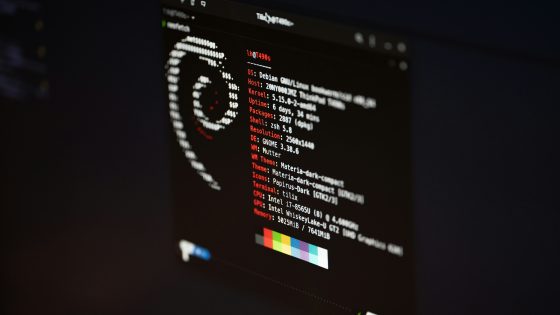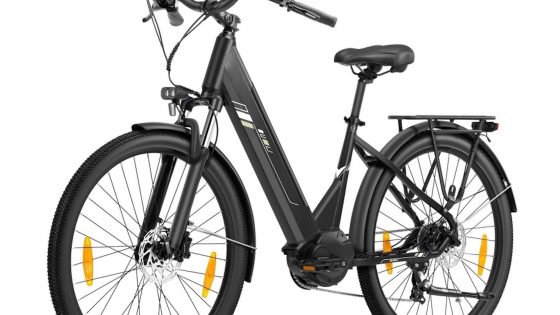Slovenia has made noticeable progress in the field of e-government and internet coverage

The European Commission published its second report on Tuesday, July 2nd. State of the Digital Decade report (once upon a time: DESI), which provides a comprehensive overview of progress towards achieving the digital goals set for 2030 in Digital Decade Policy Programme. Just like last year This year, the report does not contain a comparative ranking of the Member States on a performance scale, but rather identifies the strengths of each country in its digital transformation, while providing clear guidance on areas where additional measures are needed. This year, for the first time, the report is accompanied by an analysis national digital decade strategic plans.
In the announcement of the Ministry of Digital Transformation, it is clear that Slovenia has achieved exceptional progress in the field of e-government in the last year, including the implementation of the national e-identity scheme. Slovenia has also achieved a high level of e-health maturity, with access to e-health records rated at 87.6 out of 100 points. This achievement puts Slovenia at the forefront of digital transformation in the healthcare sector in Europe.
In the field of connectivity, Slovenia stands out with noticeable progress in 5G coverage and a high level of fiber optic coverage to premises. With 78.5 percent of households having access to optical connections, Slovenia greatly exceeds the EU average of 64 percent. These achievements position Slovenia as a leading force in efforts for digital connectivity.
In the area of connectivity, the European Commission recommends continuing and supplementing measures to solve the challenges of 5G connectivity, especially in rural areas, further ensuring access for new entrants to carry out innovative applications and accelerating the introduction of independent 5G core networks.
Additional measures
Despite the outstanding achievements in several areas, the report also highlights areas where additional measures are needed. Slovenia must focus on improving the digital transformation of companies and strengthening the digital competences of the population. There is a severe shortage of information and communication technology (ICT) specialists in Slovenia, with many companies facing recruitment difficulties, which points to a critical gap in the digital labor market.
In order to improve the digital literacy of the population, the Ministry of Digital Transformation has a number of projects underway. Last year, over five thousand people took part in trainings to improve the digital competences of children and young people (this year the number is expected to be three times higher), over 23 thousand people took part in trainings to increase digital competences in 2023 (this year they expect a similar number), digital skills were strengthened in a customized way with the help of Mobile Heroes (this year they expect a slightly higher number), and there are also Digi info points at 162 locations across the country that offer advice and support to residents in using digital public services.
At the moment, the ministry is also in the process of establishing competence centers in the field of chips and semiconductor technologies and artificial intelligence, which will have a beneficial effect on the promotion and transfer of top technological competences and capabilities in the areas of supporting economic, scientific research, development and innovation activities in Slovenia, all of this and consequently on the digital literacy of the population, the number of ICT experts and the digital intensity of the economy.
The report reveals that, given the current scenario, the combined efforts of the Member States will not reach the level of the EU's ambitions by 2030. Both at national and EU level, additional investments will be needed to achieve the set goals, especially in the areas of digital skills, high-quality connectivity, the use of artificial intelligence and data analytics in companies, semiconductor manufacturing and startup ecosystems.
The report calls on member states to be more ambitious in achieving the goals of the Digital Decade. The Ministry of Digital Transformation believes that with its achievements, Slovenia has already shown that it can become a leading country in the field of digital infrastructure, companies, skills and public services, which will be key to the future economic prosperity and social cohesion of the EU.
In 14th place among EU27 countries
According to the latest results of the regular comparative analysis of the development of e-government services in the European Union 2024 (“E-Government Benchmark”), Slovenia ranked 14th among the EU27 countries. The measurements were carried out in November and December 2023.
Regular analysis "E-Government Benchmark” is an important tool for strategic planning and management of the digital transformation of public services. It shows the progress of individual countries in achieving the EU Digital Decade goals, a comparison with other countries and also includes examples of good practices in the EU. The findings can help countries plan activities and resources and evaluate the effects of various development projects and measures. Such analyses also enable the exchange of good practices, knowledge and experience between countries and more uniform and high-quality public administration services that improve the lives of citizens and increase the competitiveness of the economy.
The set of life events used also represents the so-called “key digital public services” that are important from the perspective of the objectives EU Digital Decade 2030 and from the perspective of national goals Digital Public Service Strategies 2030 and strategies Digital Slovenia 2030.
Last year, European Commission experts analyzed the following five life events:
- Regular business operations of the company – spot.gov.si, edavki.durs.si, fu.gov.si, ajpes.si;
- Moving – e-government.gov.si, gov.si, ljubljana.si, maribor.si, celje.si, murska-sobota.si, slovenjgradec.si, kranj.si, koper.si, velenje.si, novomesto.si , ptuj.si;
- Transportation – e-government.gov.si, gov.si, dars.si, ljubljana.si, maribor.si, kranj.si, visitopker.si, kp-velenje.si, novomesto.si, js-ptuj.si, visitslovenjgradec .si, murska-sobota.si, zpo.si, lpp.si, marprom.si, potniski.sz.si;
- Small value disputes – sodisce.si, eu-drzavljan.si, e-justice.europa.eu;
- Health – zzzs.si, narocanje.ezdrav.si, zvem.ezdrav.si, zd-lj.si, zd-mb.si, zd-celje.si, zd-ms.si, zd-kranj.si, zdravniskazbornica.si .
The methodology covers four key dimensions – user orientation (availability, usability), transparency (service offering, service planning, personal data), mobility (cross-border) and key factors (eID, eDocuments, registers, eService).
Slovenia ranks around the European average in terms of the development of e-government services compared to other European countries. According to the two-year average of the main indicators, Slovenia ranks 14th among the EU27 countries in terms of overall e-government maturity. The Slovenian examples of good practice highlighted this time are “data acquisition on the SPOT portal for calculating salary compensation during temporary absence of an employee from work due to health reasons” and “PLADENJ – a common platform for national and cross-border data exchange with AI support”.




























